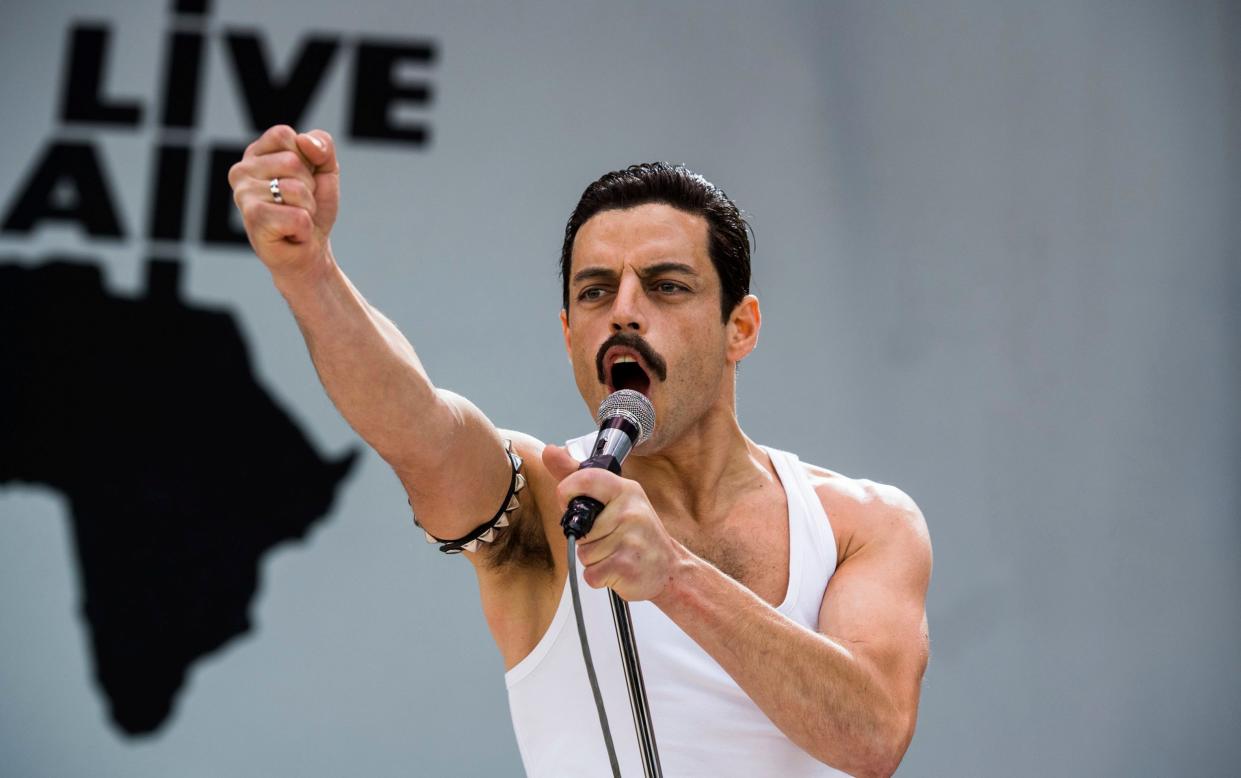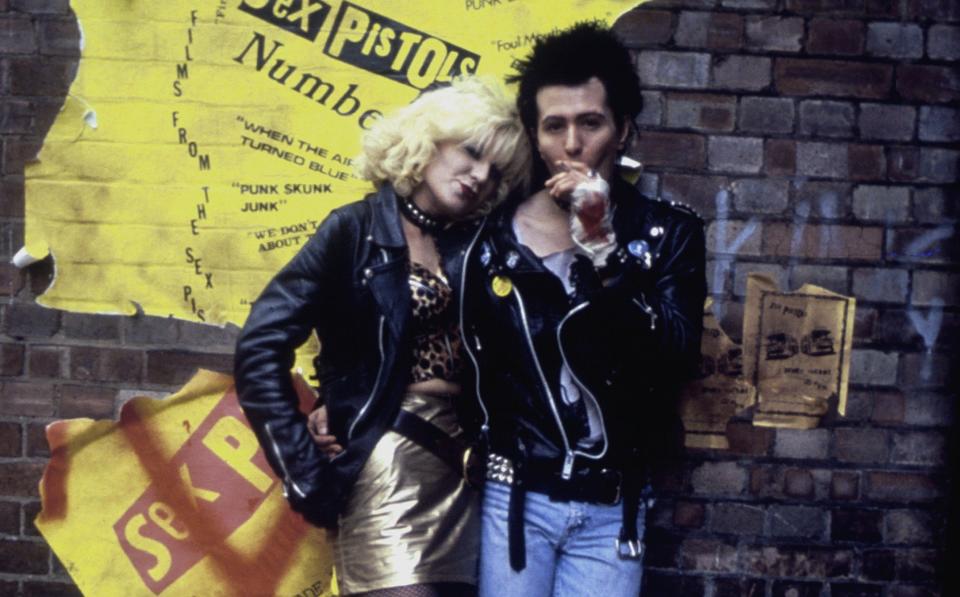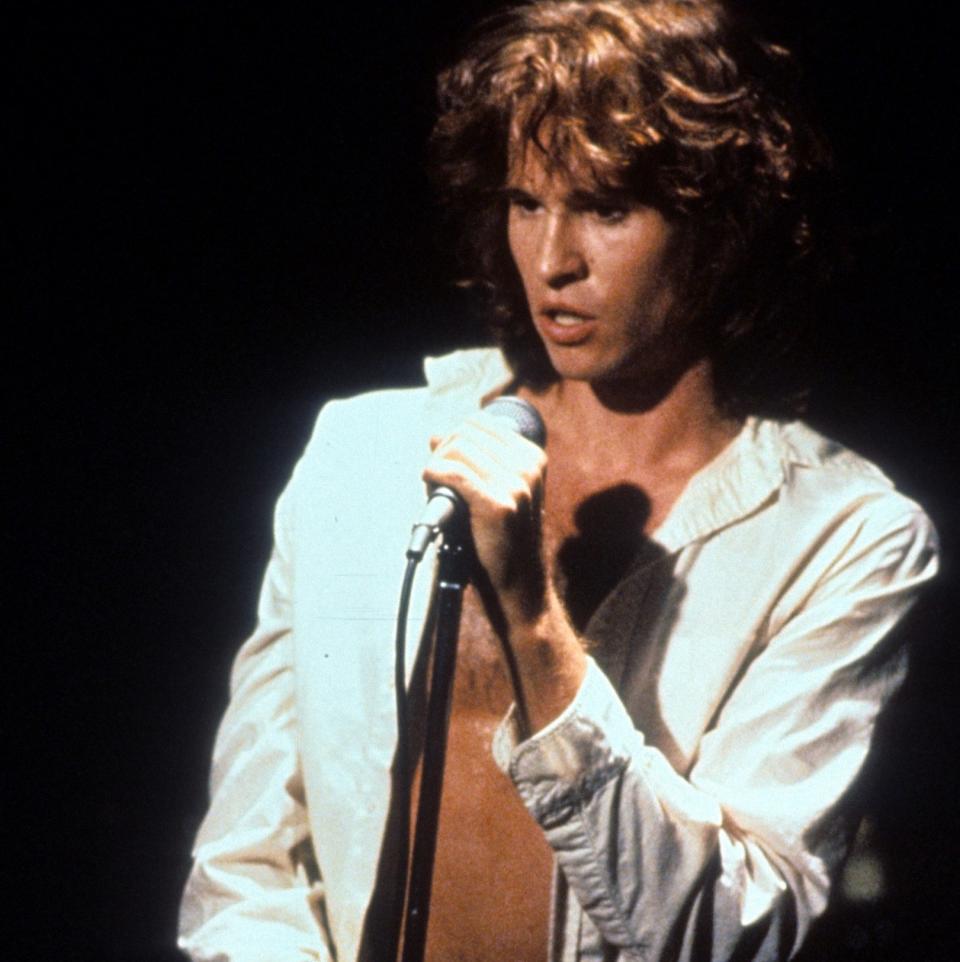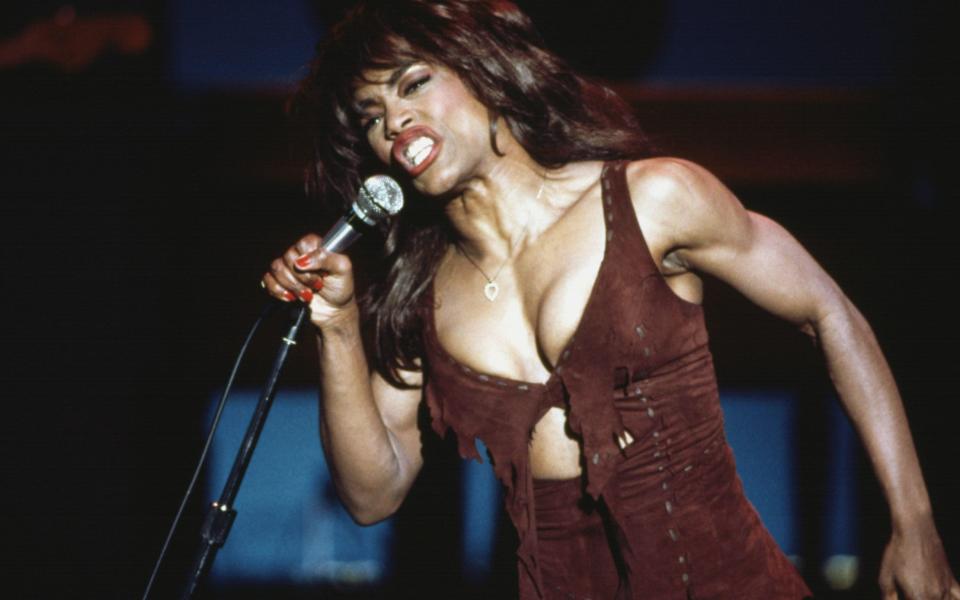The Beatles’ Bohemian Rhapsody? The rock biopic mistakes Sam Mendes needs to avoid

- Oops!Something went wrong.Please try again later.
- Oops!Something went wrong.Please try again later.
- Oops!Something went wrong.Please try again later.
Let me begin with some good advice: never watch a rock biopic with a music journalist. Certainly, an adherence to this rule might have saved my wife a measure of worry when she thought I was suffering a medical emergency during a screening of Bohemian Rhapsody at my local Odeon. Hearing gasps of horror, she asked me what was wrong? “It’s what that guy playing Roger Taylor just said,” I replied. “About Queen being uneasy about playing Live Aid cos they hadn’t done a gig for years.” And what of it? “Well, it’s wrong. They toured the year before. They played four nights at Wembley Arena!”
At least she now knows to ignore any shrieks of displeasure I might let loose while witnessing portrayals of a musician’s life splayed onto celluloid. Which is good, because music biopics are a profitable and ongoing fixture in cinemas worldwide. My question as to why a film crew were gathered in a nearby pie and mash shop on Royal College Street was answered recently when I saw the trailer to Back To Black, a forthcoming picture about the life and death of Amy Winehouse.
And this week it has emerged that Sam Mendes is to make individual biopics of all four Beatles, to be released together in 2027, and that Ridley Scott plans to direct a film about the Bee Gees. It’s likely this evergreen genre will be ah-ah-ah-ah staying alive longer than I will.
These days, though, the worries are on me. Should I indeed suffer a fatal heart attack or an embolism in a darkened room, my transition from life to death will be discovered only when the credits roll. But for any filmmaker hoping to avoid conniptions among audience members who will likely find something to annoy them, there are guidelines to follow when it comes to a successful musical biopic:
Get the details right – fans will know if you don’t.
Take care filming “live” performances. The fleeting magic of a gig is devilishly difficult to recreate onscreen.
Hire the right actor in the lead role. Audiences will be unmoved by Morgan Freeman playing Karen Carpenter.
Stick to your guns. Don’t aim for a happy ending when in real life none exists.
Make sure it rocks. Even Tom Hiddleston giving his all as Hank Williams couldn’t breathe life into the rigid corpse of I Walk The Line.
Recently I managed to survive a screening of Bob Marley: One Love, the latest hit about a star who no longer walks among us. It’s so far made over $80 million at the global box office. As cinema, the film is some way short of being a classic, but at least its keen eye for factual detail saved me from undue consternation. It knows, for example, that the football injury that heralded the diagnosis of a cancer that would eventually kill the singer, in 1981, occurred in Paris rather than London (as is sometimes reported). A shot of the exterior of the Rainbow Theatre, in Finsbury Park, at which Marley and the Wailers performed four legendary gigs, was another welcome moment.

The decision to focus the action on a specific period of Marley’s life – the two years straddling the release of the pivotal Exodus album, in 1977 – is also a strong one. Ordinarily, the storylines of music biopics are restrictive and predictable. Following a rise to stardom, the subjects either live or die. A third eventuality, of a dismal descent back to obscurity, is of no interest to either filmmakers or producers. This paucity of options means the genre’s tropes are often as familiar as the sound of a guitar solo in a rock song.
Within these parameters, acting is everything. I was certainly encouraged by many a striking moment in One Love in which leading man Kingsley Ben-Adir nails Marley’s mannerisms like a ghost made flesh. In the world of musical biopics, a credible turn in a lead role can cover a multitude of sins. Gary Busey’s astounding performance behind horn-rimmed glasses transformed The Buddy Holly Story from a digestible potboiler into a compelling portrayal of a doomed genius. More recently, in Rocketman, Taron Egerton’s young Elton John, blinded and bewildered by the first flush of fame, was similarly uncanny.
To my eye, though, the award for the best performance in the role of a luckless rocker belongs to Gary Oldman. Appearing onscreen alongside a brilliant Chloe Webb in Sid and Nancy, from 1986, the actor inhabits the public and private persona of Sex Pistol Sid Vicious with a completeness that makes me gasp. A scene on the cold streets of New York City in which he is seen jonesing for a fix is particularly affecting. An air of vulnerability mitigates the senseless acts of explosive violence. Despite the carnage, Oldman brings a tenderness to his character’s wildly dysfunctional relationship with Nancy Spungen that remains rooted in love until the grisly end.

The film is not without missteps. Although recent evidence suggests that Vicious was not in fact the person who killed Spungen in a room at the Chelsea Hotel, in Manhattan, Cox portrays him as a guilty man. Fine – after all, this was the received wisdom of the time. But the decision to show the pair reunited in a tender embrace in the back of a taxicab following the bassist’s own death, from a heroin overdose in 1979, strikes a sour note that appears to validate a murderer. Sid and Nancy died in drug-addled squalor, age 21 and 20 respectively. There is no happy ending to be found here.
To no one’s surprise, Pistols singer John Lydon was even less impressed by the clumsy attempt to tie a bow on a body bag. “To me this movie is the lowest form of life,” he said. “I honestly believe that it celebrates heroin addiction. It definitely glorifies it at the end when that stupid taxi drives off into the sky.”
But while the temptation to carve order and resolution from the messy lives of lunatics is often irresistible, there are some biopics that aren’t at all bothered about sending audiences home in a glow of phony happiness. The determination of Sex & Drugs & Rock & Roll to hold its gaze when life turns ugly makes good use of a remarkable portrayal, by Andy Serkis, of Ian Dury. Director Mat Whitecross is surefooted in telling the story of a performer touched by genius and madness. The music is great, of course, but even hardcore fans would balk at the thought of having Dury in their lives on anything like a permanent basis.
Elsewhere, indulgent subjects can make for an indulgent movie. Try as I might, I can’t improve on the verdict of American comedian Denis Leary on Oliver Stone’s foray into musical biopics in the 1991 film The Doors. “We need a two-and-a half hour-movie about The Doors?... I don’t think so. I can sum it up for you in five seconds – I’m drunk, I’m nobody; I’m drunk, I’m famous; I’m drunk, I’m f______ dead,” was his thumbnail review of the life of singer Jim Morrison.
Matters were hardly improved by the addition of hokum. In fact, now that I think about it, a scene in which Morrison (played by Val Kilmer) thumbs a ride to Los Angeles was the first time I winced at a historical misrepresentation in a musical biopic. Having read the book Wonderful Avenue, by the band’s former manager Danny Sugerman, I already knew the singer had never hitchhiked in his life. Remarkably for a man who was once arrested for whipping out his todger onstage, he thought it declassee. Even today, whenever I think of the film, this pointless inaccuracy is the first thing that comes to mind. It begs the question: if Stone got this apparently minor detail wrong, then what else is amiss?
But while The Doors is bloated and portentous, it does at least get one crucial detail right. The sight of a drunk and belligerent Morrison goading an audience while dodging security guards and cops manages the difficult task of recreating a concert that actually looks real. In the world of the music biopic, such hurdles are rarely cleared.

In CBGB, actors playing the young punks of seventies New York look like crash test dummies on a night out at a karaoke bar. The scene in The Dirt of surrogates aping the moves of Motley Crue at the Long Beach Arena, in Los Angeles, somehow accomplishes a task I believed to be impossible. It’s worse than watching the real Motley Crue.
But while other such failures are too numerous to mention, the rare successes are worth noting. Great Balls Of Fire, from 1988, may have been a turkey of such proportions that cinemas ought to have served cranberry sauce rather than popcorn to the few people who saw it, but at least the footage of Dennis Quaid knocking concert audiences dead as Jerry Lee Lewis was suitably electrifying. More recently, the recreation by actor Naomi Ackie of Whitney Houston’s acclaimed rendition of the American national anthem prior to the start of Super Bowl XXV, in I Wanna Dance With Somebody, captures the scale and magnificence of the event itself.

As rendered on film, Houston’s life was well served by the kind of conflict that would prove ruinous in the real world. As well as the handicap of a reliance on hard drugs, her capacious talents were sapped by a tumultuous relationship with singer Bobby Brown, as well as mismanagement at the hands of her profligate father. The trajectory of her career was the opposite of fellow icon Tina Turner, whose own adjacent biopic, What’s Love Got To Do With It?, wowed the critics in 1993. At least viewers of that film could take comfort in knowing that in escaping the violence of husband Ike, Turner achieved the kind of contended superstardom that was always her due.
In part, What’s Love Got To Do With It? earns its happy ending by acknowledging that the world of music is a dangerous place populated by weirdos and creeps. Despite the widely known truth that women, especially, are at risk of trespass, the film The Runaways, on the other hand, ignores allegations of rape levelled against manager Kim Fowley by bassist Jackie Fox in favour of an admittedly well-told tale of a common-or-garden implosion fueled by acrimony and drugs. This turning of a blind eye to a story that was eventually told in full in the Sky Arts documentary series Look Away is wilfully ignorant.
But even this is better than devious hagiography. The omission of the physical abuse of women by former NWA member Dr. Dre from 2015’s Straight Out Of Compton is a sleight of hand that amounts to artistic cowardice. Then again, what else can one expect when Dre himself is one of the film’s producers? As with so many musical biopics, its story is wholly enjoyable. It’s also as partial and selective as a party political broadcast.
The problem is widespread. At the very least, the success of a biopic depends on the granting of rights to music made by artists who might not be wholly keen on seeing their darkest moments projected onto a cinema screen. I’ll be interested to see how Sam Mendes treats the story of one Beatle in particular. As John Lennon himself once said, “I used to be cruel to my woman, and physically – any woman. I was a hitter. I couldn’t express myself and I hit. I fought men and I hit women. That is why [in the 1970s] I am always on about peace.”
Thankfully, there are no flies on my personal favourite. Released in 2008, Telstar: The Joe Meek Story features a lead performance by Con O’Neill that is among the finest the genre has ever produced. As well as being a genius of a record producer, the charming yet psychopathic Meek was a madman who would die by suicide after murdering his landlady. The sight of him losing his temper in his home studio is as terrifying for the viewer as it must have been for the bands and artists he threatened and abused. The film seems to understand that this is the lot for so many musicians. Lured by the promise of glittering prizes, instead they come to harm.

